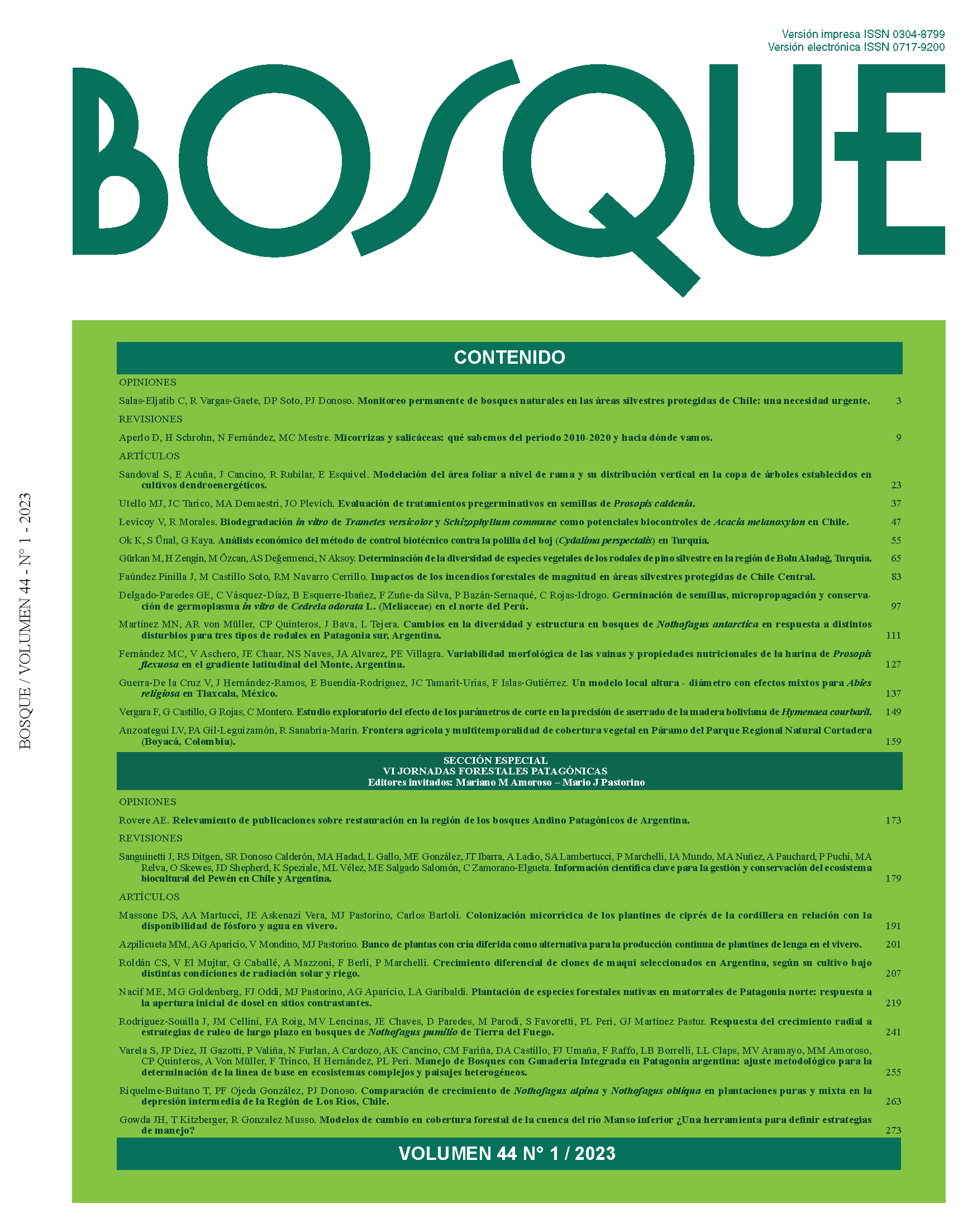Main Article Content
May 22, 2023
Abstract
Prosopis species (mesquite trees) provide one of the main Non-Timber Forest Products of the Monte Desert and their pods have played an important role as a source of livelihood for the inhabitants of most arid regions of America. Our goals for this study were to analyze the morphological variability of P. flexuosa (mesquite) fruits and the chemical-nutritional properties (moisture content, ash, total protein, total lipids, total crude fiber, soluble sugars and total carbohydrates) of the endocarp-free flour in eight provenances distributed along the latitudinal gradient of the Monte desert (Pipanaco, Fiambalá, Chilecito, Telteca, Montecaseros, Las Catitas, Ñacuñán and San Rafael). The fruits were collected from locations isolated from each other by mountain ranges or by a distance of more than 100 km. A latitudinal differentiation in fruit morphology was observed between the locations. Those from the northernmost location (latitude 27° 58’ - 29° 29’ S) differed in their morphological characteristics in that they were longer, and therefore have more knots and seeds than the fruits of the southernmost populations (latitude 32° 22’ - 35° 18’ S). However, there was no observed effect of geographical location on the chemical characterization of the flour. Only the total fat content was higher in the southern population. P. flexuosa flour from Mendoza contained high levels of soluble sugars and carbohydrates in Telteca, which could be related to the water stress tolerance of mesquite trees.


